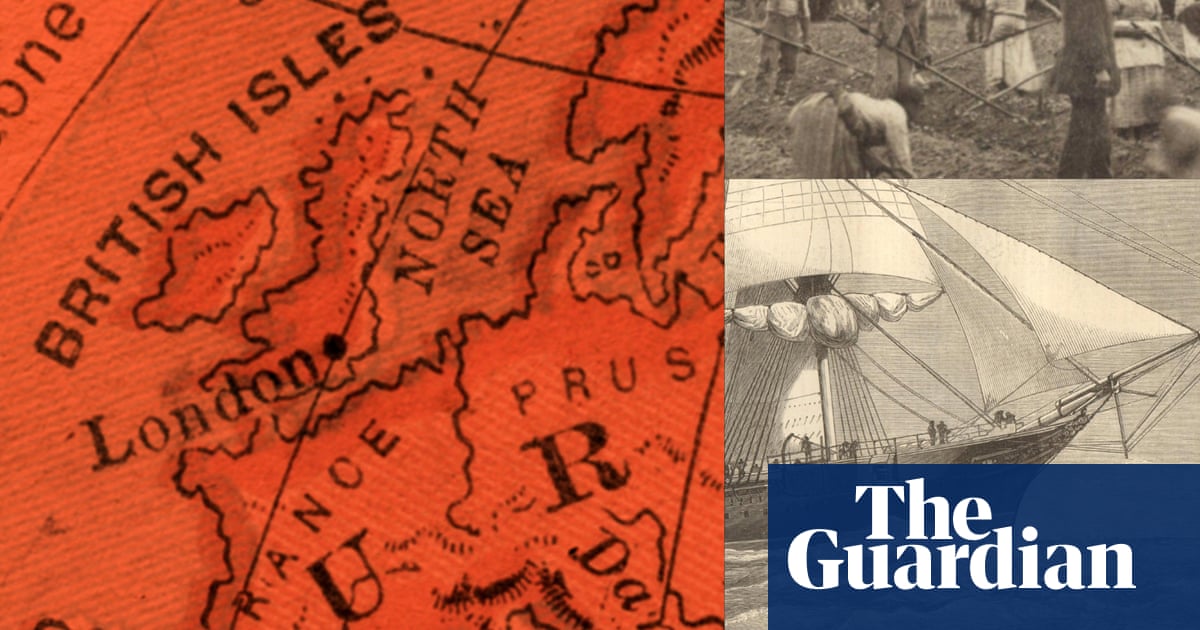Britons are widely ignorant of the scale and legacy of Britain’s involvement in slavery and colonialism, a survey has found, with the vast majority unaware how many people were enslaved, how long the trade went on for, or for how long UK taxpayers were paying off a government loan to “compensate” enslavers after abolition.
The poll, released to coincide with Tuesday’s UN International Day of Remembrance of the Victims of Slavery and the Transatlantic Slave Trade, was commissioned by the Repair Campaign, which is working with Caricom to secure reparatory justice for member states through health, education and infrastructure projects.
The sample of more than 2,000 people representative of the UK population found 85% did not know that more than 3 million people had been forcibly shipped from Africa to the Caribbean by British enslavers.
deleted by creator
Andrea Levy explores that in this essay.
The whole essay is great and I recommend it.
"But all this happened 3,000 miles away from Britain, and as a result it has been possible for it to quietly disappear from British mainstream history. This is the absence, the gap in knowledge, the amnesia of the British that made the black man on the bus such an alien. It is unthinkable that a book on American history could leave out plantation slavery in the southern states. But in British history books the equivalent is the case, or at least the importance of those centuries of British slavery in the Caribbean is underplayed. That British plantation slavery has no lasting legacy for this country is absurd, but it is a claim that is made implicitly by this silence. It was so very long ago, it seems to say, we don’t need to dredge it up.
I remember what I was taught at school about Britain in the Caribbean. I had one lesson on the transatlantic slave trade. We looked at illustrations of slaves in ships. But that was all. I learned much more about William Wilberforce and the campaign for the abolition of slavery than anything about the life of a slave. We know more about slavery in the American South than in the British Caribbean. We are familiar with the struggles of African Americans from the Civil War to the Civil Rights movement. But American slavery was different from Caribbean slavery. In the Caribbean, slaves far outnumbered the white owners, and that mix of isolation, fear and dependency produced very different societies from those of the American South. America’s story will not do for us. Our legacy of slavery is unique, and we need to understand what it is."
We learnt about it at school, but England has a lot of history to learn and other than “it’s bad” it doesn’t exactly have a whole lot of relevance as far as applications go. The modern issues with racism are a bit more nuanced than “people who look different are animals”.
deleted by creator
Also various places want their stolen objects back from our museums.
It was covered a bit when I was in school. Although the main focus was “yeah we did some bad slavery stuff. But we got rid of slavery much sooner than America and some other countries did!”
So it wasn’t exactly done in the best of ways. Although at the risk of repeating that same approach, as someone else here mentioned I think that’s the case with pretty much every country that enslaved or abused people.
deleted by creator
Yeah, I was definitely not taught about that!
The slave trade is a mandatory part of the curriculum at ks3. You’ve just forgotten. And it’s pretty worts and all as far as Britain’s involvement goes.
I agree with your sentiments though, everyone likes to mythologise their history.
deleted by creator
I had same experience as you and finished school in 99. Not a thing about slavery.
We had the Gandhi tapes on VHS for one day.
I think most nations have similar lapses. I attended university in my late 40’s and none of my younger classmates had ever heard of the October crisis that led to “Prime Minister Pierre Trudeau (to invoke) the War Measures Act for the first time in Canadian history during peacetime.”
I learned quite a bit when i was in secondary school around 2010ish
deleted by creator
Most Britons probably don’t know about how the British navy patrolled the African coast for 50 years trying to stop slavery. Its a recent TIL for me, anyway.
Yes sure. But that doesn’t play along with the current narrative. So history shouldn’t be brought up like that. This is about revisionism. We all should feel guilty for something we have no power over so we can discuss non issues instead of actual problems.
Good to know I’ll have to teach my kid this stuff myself. Anyone got a friendly educational series they like, or are we just gonna be doing Behind the Bastards and frowning hella hard together as a family
I feel like most of Europe isn’t, because Europeans get real uppity when slavery in America comes up, but like…y’all started it.
Most of the Europe was not part of the colonization of Africa though. It was like seven countries. Don’t blame all europeans for what those countries did.
Nobody started it. It’s ever-present from prehistory to today.
And I thought we (the US) were the only ones this dumb.
deleted by creator
deleted by creator
deleted by creator
deleted by creator
deleted by creator
deleted by creator
People are more similar than they are dissimilar regardless of where you look, I’ve found.
dumbuneducated.
…with the vast majority unaware how many people were enslaved, how long the trade went on for, or for how long UK taxpayers were paying off a government loan to “compensate” enslavers after abolition.
Talk about having your cake and eating it.
Taxpayers paying for the freedom of enslaved people shows how dedicated the British people were to ending the Atlantic slave trade. The fact that they try to use this as a negative in our history stuns me. You can spin it as “compensating slavers” but the fact is the person was free. And at that time the UK did everything in it’s power to free as many as it could by any method.
Yes, the empire has it’s history with slavery and British citizens were involved in the slave trade. However British sailors died fighting to end to transatlantic slave trade. Sometimes, I expect there was British on both sides.
If you’re going to educate people about our history you have to teach the negatives and the positives, and not spin the one in to the other.
Ya the “we spent money” makes the writer seem like and idiot.
The Portuguese did much worse, I wonder how aware they are.
There was a point in time where 90% of Brazil’s population was enslaved black peoples.deleted by creator
Yes, the more notable thing is that, for some reason, the British decided the practice should end.
When it was no longer profitable.










